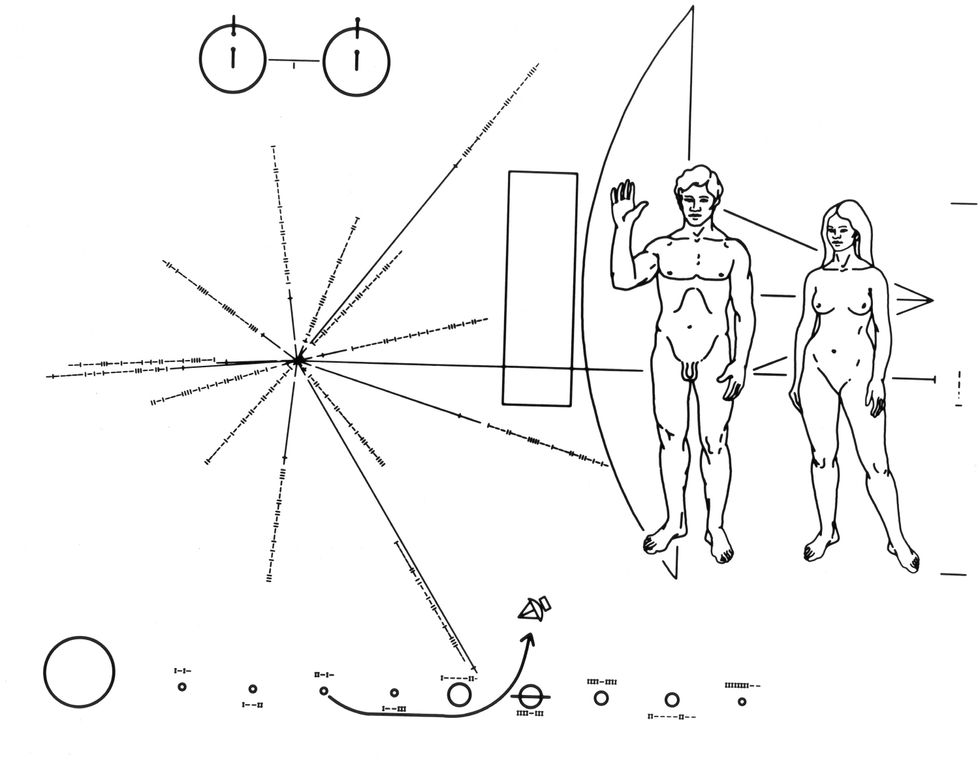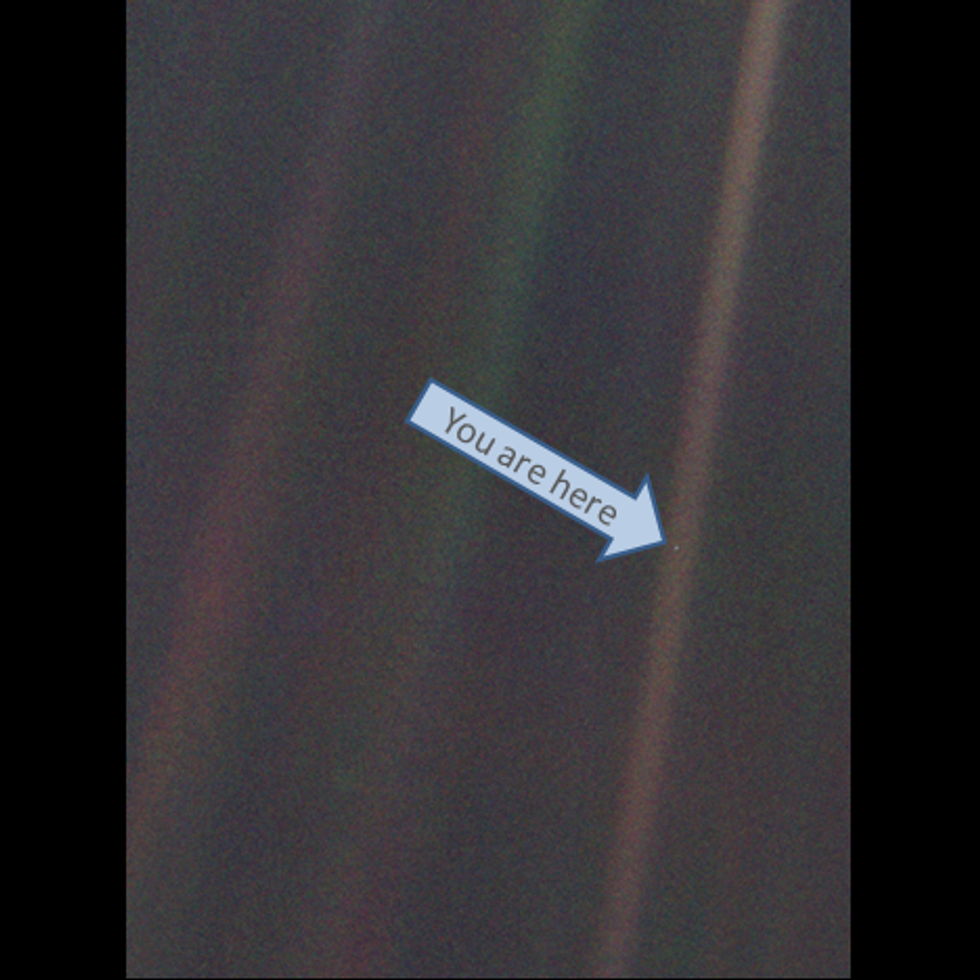"Carl Edward Sagan (/ˈseɪɡən/; November 9, 1934 – December 20, 1996) was an American astronomer, cosmologist, astrophysicist, astrobiologist, author, science popularizer, and science communicator in astronomy and other natural sciences." (https://en.wikipedia.org/wiki/Carl_Sagan)
He correctly predicted methane lakes existing on Saturn's largest moon, Titan. He directly inspired astrophysicists like Neil deGrasse Tyson to go deeper still into the mysteries of the Universe. He sent the first messages from earth into space. One message being a golden record containing the various music, languages, and sounds of the earth. The other is a plaque depicting two hydrogen atoms, our species, our location in regard to the Galaxy and the 14 pulsars, our Solar System, and a silhouette of the Pioneer space craft, drawn to scale to convey the actual size of our species. How would an alien lifeform understand our message? It's written in the language of Science. If an alien understands space travel, then they must understand Science. Therefore, they will understand the scientific notations describing who and where we are in the Universe.

Carl Sagan was a pioneer, an influencer, a genius. He wanted to spread the unfathomable wonder of the Universe to each and everyone one of us. In a way, he did, whether we realize it or not. His famous excerpt, 'Pale Blue Dot', was inspired by its accompanying photograph, seen below. As the Voyager 1 space probe completed its mission and was leaving the Solar System, Carl Sagan requested it take one last photo of Earth before escaping from view.
'Pale Blue Dot' is a reminder of how minuscule we are in comparison to the observable Universe. We are one tiny planet, revolving around one medium-sized star, in a galaxy containing around 250 billion other stars, in a cluster of 47,000 other galaxies, with 10 million other clusters just like it. Let's assume those numbers are exact and each galaxy and cluster are identical. In that case, we are approximately 1 out of 11,750,000,000,000,000,000,000,000,000,000- a tiny blue pixel in the Universe. Coming to this realization humbles our perceived self-importance and reminds us that so far, this little planet is all we've got. It prompts us to cherish this incredibly random chance at life we have, to cherish each other, and to "cherish the pale blue dot."
PALE BLUE DOT

That's here. That's home. That's us. On it, everyone you love, everyone you know, everyone you ever heard of, every human being who ever was, lived out their lives. The aggregate of our joy and suffering, thousands of confident religions, ideologies, and economic doctrines, every hunter and forager, every hero and coward, every creator and destroyer of civilization, every king and peasant, every young couple in love, every mother and father, hopeful child, inventor and explorer, every teacher of morals, every corrupt politician, every "superstar," every "supreme leader," every saint and sinner in the history of our species lived there, on a mote of dust suspended in a sunbeam.
The Earth is a very small stage in a vast cosmic arena. Think of the rivers of blood spilled by all those generals and emperors so that, in glory and triumph, they could become the momentary masters of a fraction of a dot. Think of the endless cruelties visited by the inhabitants of one corner of this pixel on the scarcely distinguishable inhabitants of some other corner, how frequent their misunderstandings, how eager they are to kill one another, how fervent their hatreds.
Our posturing's, our imagined self-importance, the delusion that we have some privileged position in the Universe, are challenged by this point of pale light. Our planet is a lonely speck in the great enveloping cosmic dark. In our obscurity, in all this vastness, there is no hint that help will come from elsewhere to save us from ourselves. The Earth is the only world known so far to harbor life. There is nowhere else, at least in the near future, to which our species could migrate. Visit, yes. Settle, not yet. Like it or not, for the moment, the Earth is where we make our stand.
It has been said that astronomy is a humbling and character-building experience. There is perhaps no better demonstration of the folly of human conceits than this distant image of our tiny world. To me, it underscores our responsibility to deal more kindly with one another, and to preserve and cherish the pale blue dot, the only home we've ever known.
-Carl Sagan



















